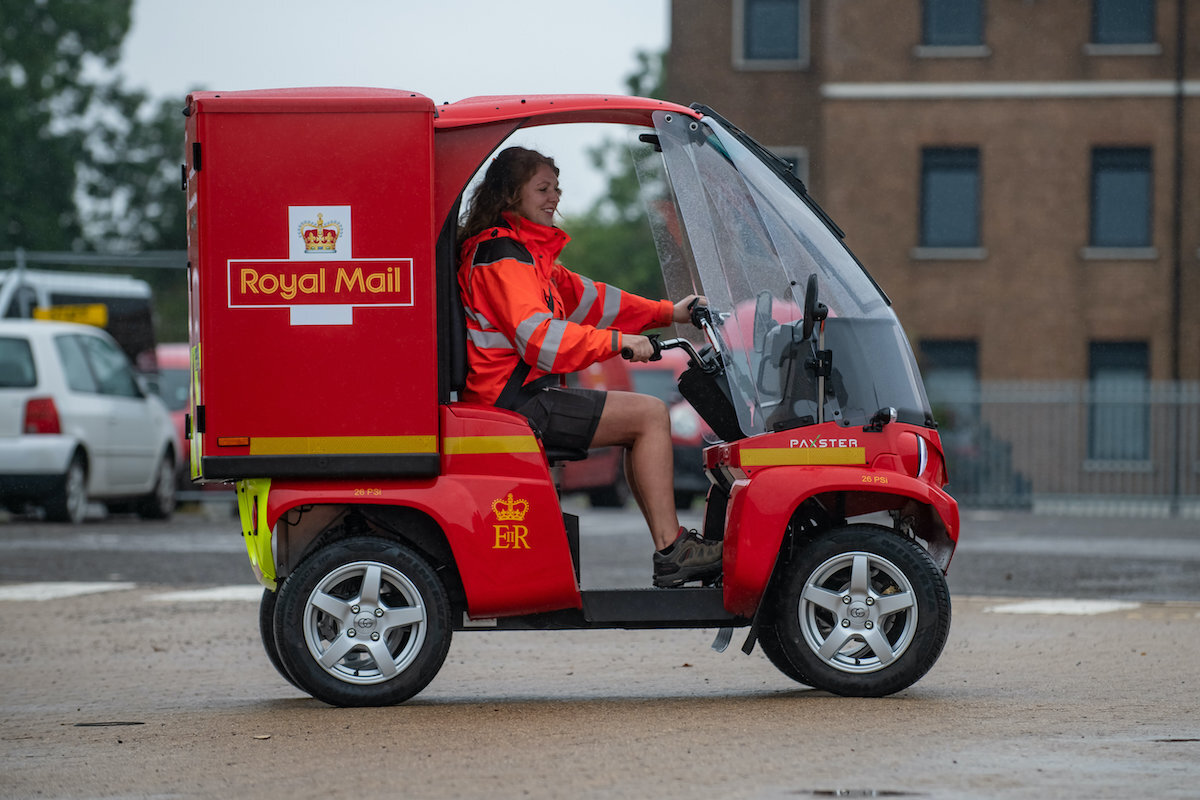
Photo: Royal Mail
UK’s Royal Mail trials micro EVs for last-mile deliveries
22 September 2021
by Christopher Carey
The UK’s largest delivery firm, Royal Mail, has started trialling micro electric vehicles for last-mile deliveries in residential areas in an effort to reduce its carbon emissions.
The company will start testing two new “quadricycle” class vehicles – the Paxster Cargo and Ligier Pulse 4, which are both the size of a golf buggy – over a period of six months in London, Edinburgh, Crewe, Liverpool and Swindon.
Simon Thompson, Chief Executive Officer at Royal Mail, said: “It’s really exciting to see these micro electric vehicles making their way into our daily deliveries.
“We’re committed to keep on reducing our environmental impact and we intend to leave no stone unturned in trialling new technologies and new ways of delivering to help us do that.”
Royal Mail says the vehicles can accommodate more than an average daily round’s worth of letters and small parcels, and once the trial period has ended the firm will decide on whether to roll out more micro EVs.
Home deliveries have spiked globally during the pandemic, and companies are coming under increasing pressure to do more to reduce their emissions.
Figures released last week by the UK’s Office for National Statistics found that 27.7 percent of retail sales took place online in August – up from 19.7 percent in pre-pandemic February 2020.
Dublin air monitors
Delivery firm DPD Ireland has launched a new air quality project to monitor pollution levels across the Irish capital.
Working in partnership with Dublin City Council and environmental-tech company Pollutrack, air quality sensors will be installed on 22 buildings – including libraries, DPD depots and schools – and 102 vehicles across Dublin, measuring air quality in real-time.
Data gathered from the project will be shared with universities, local authorities, the Asthma Society of Ireland, and the public to produce air quality maps and identify hotspots with higher than average particulate matter (PM) levels.
“Increasing the availability of air quality data by installing one of these monitors on the Trinity campus is something that we in the Air Pollution Research Group are delighted to support,” said John Gallagher, Assistant Professor in Environmental Systems Modelling at Trinity College Dublin.
“The extensive monitoring network will feed into a city-wide dataset that can improve how we map air quality in Dublin, and more importantly help us target pollution hotspots and design informed solutions across the city.”
The laser sensors capture PM2.5 levels in real time at breathing level, and transmit the data every 12 seconds via GSM to a database developed by Pollutrack.
PM2.5 can be harmful if it enters the lungs or blood stream, especially for people with asthma.
DPD Ireland’s Chief Executive Des Travers said the company is installing the sensors across Dublin city as an act of faith, using its existing fleet for a social good.
“If we put the right information in the right hands, we hope to make a positive influence on people’s lives in Dublin,” he commented.
“Our vans are gathering incredible data about Dublin’s air quality, which we will give to universities and city authorities. It is our gift to Dublin, because information inspires action.”
Image: Royal Mail











